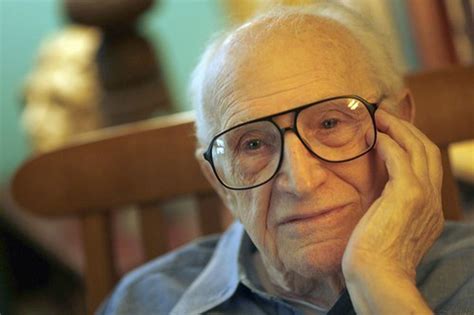A Quote by Natalie Gulbis
I played with Annika today. I love being paired with her. She does not make many mental mistakes, and she has the ability to repeat her swing over and over and wears people down.
Related Quotes
She was beautiful, but not like those girls in the magazines. She was beautiful, for the way she thought. She was beautiful, for the sparkle in her eyes when she talked about something she loved. She was beautiful, for her ability to make other people smile, even if she was sad. No, she wasn't beautiful for something as temporary as her looks. She was beautiful, deep down to her soul. She is beautiful.
Michelle Kwan is an incredible artist, she wears her heart on her sleeve when she performs. She has grown so much from every influence in her career, and she has made herself the biggest star there ever will be in figure skating. She's down to Earth, friendly and always positive. Nobody will ever match her longevity or her ability to be such a strong competitor.
When she closed her eyes she felt he had many hands, which touched her everywhere, and many mouths, which passed so swiftly over her, and with a wolflike sharpness, his teeth sank into her fleshiest parts. Naked now, he lay his full length over her. She enjoyed his weight on her, enjoyed being crushed under his body. She wanted him soldered to her, from mouth to feet. Shivers passed through her body.
Day and night she had drudged and struggled and thrown her soul into her work, and there was not much of her left over for anything else. Being human, she suffered from this lack and did what she could to make up for it. If she passed the evening bent over a table in the library and later declared that she had spent that time playing cards, it was as though she had managed to do both those things. Through the lies, she lived vicariously. The lies doubled the little of her existence that was left over from work and augmented the little rag end of her personal life.
He shrugged. "I was...thinking." "About what?" "The fires of purgatory." She had to sit down. He wasn't making any sense now. "What does that mean?" she asked. "Patrick told me he would walk through the fires of purgatory if he had to in order to please his wife." She went over to the bed and sat down on the side. "And?" she prodded when he didn't continue. He stripped out of his clothing and walked over to her. He pulled her to her feet and stared down to her. "And I have only just realized I would do the same for you.
She laughs and looks out the window and I think for a minute that she's going to start to cry. I'm standing by the door and I look over at the Elvis Costello poster, at his eyes, watching her, watching us, and I try to get her away from it, so I tell her to come over here, sit down, and she thinks I want to hug her or something and she comes over to me and puts her arms around my back and says something like 'I think we've all lost some sort of feeling.
He took her in his arms right away. "I'm so sorry," he murmured in her ear. He rocked her, saying it over and over. But no matter how many times he said it, no matter how much she knew he meant it, the words stirred around in her ear but didn't get into her brain. Sometimes he could comfort her. Sometimes he said what she needed, but today he couldn't reach her. Nothing could.
The adolescent does not develop her identity and individuality by moving outside her family. She is not triggered by some magic unconscious dynamic whereby she rejects her family in favour of her peers or of a larger society.... She continues to develop in relation to her parents. Her mother continues to have more influence over her than either her father or her friends.
Yet losing him seemed unbearable. He was the one she loved, the one she would always love, and as he leaned in to kiss her, she gave herself over to him. While he held her close, she ran her hands over his shoulders and back, feeling the strength in his arms. She knew he’d wanted more in their relationship than she’d been willing to offer, but here and now, she suddenly knew she had no other choice. There was only this moment, and it was theirs.
I never get tired of looking at her [Catherine Keener] and it always surprises me, despite how many hours of film I've shot on that face. She's fantastic. She does comedy and tragedy so equally well. She wears her feeling so on the surface for both. I try to stop myself from casting her but I just keep coming back to her. She's just so fantastic to work with.
Sometimes a woman's love of being loved gets the better of her conscience, and though she is agonized at the thought of treating a man cruelly, she encourages him to love her while she doesn't love him at all. Then, when she sees him suffering, her remorse sets in, and she does what she can to repair the wrong.
A woman is never so happy as when she is being wooed. Then she is mistress of all she surveys, the cynosure of all eyes, until that day of days when she sails down the aisle, a vision in white, lovely as the stefanotis she carries, borne translucent on her father's manly arm to be handed over to her new father-surrogate. If she is clever, and if her husband has the time and the resources, she will insist on being wooed all her life; more likely she will discover that marriage is not romantic, that husbands forget birthdays and aniversaries and seldom pay compliments, are often perfunctory.
For hours she danced and sang and flirted and did this thing that's-she did Marilyn Monroe. And then there was the inevitable drop. And when the night was over and the white wine was over and the dancing was over, she sat in the corner like a child, with everything gone. I saw her sitting quietly without expression on her face, and I walked towards her but I wouldn't photograph her without her knowledge of it. And as I came with the camera, I saw that she was not saying no.
She wrote poetry constantly; that was her "work". She was a slow bleeder and she slaved over it for long, exhausting hours, and many a middle of a night I could hear her creaking around the dead house with a pen in one hand, a clipboard and a flashlight in the other, refining her poems, jotting down the lines of a conceit. Writing never came easy for her; it gave her calluses. She never courted the muses, she wrestled them, mauled them all over the house and came up, after weeks of peripatetic labor, with a slim Spencerian sonnet, fourteen lines of imagistic jabberwocky.






































